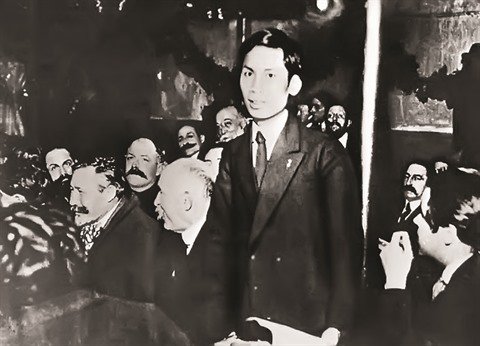
Ho Chi Minh at the Congress of Tours (France) in 1920.
HO CHI MINH, “LENIN AND THE COLONIAL PEOPLES”
Ho Chi Minh published “Lenin and the Colonial Peoples” (1925)
in a Russian journal, arguing that Lenin was “the first to
denounce resolutely all the prejudices which still persisted in the
minds of many European and American revolutionaries.” Lenin
displayed concern for colonial countries and “deep insight” into
their material conditions and their revolutionary potential, Ho
wrote, and he understood that world revolution could not happen
without them. “In the history of the colonial peoples weighed
down with sufferings and deprived of their rights,” he concluded,
“Lenin is the creator of a new life, a beacon which shows
oppressed mankind the road to liberation.”
At this point, Ho was living in China, where he founded, also in
1925, the Revolutionary Youth League of Vietnam, which became
the Vietnamese Communist Party in 1930. He also founded Thanh
Nien, the Youth League’s newspaper, and wrote many of the
editorials himself; it was printed in China and distributed in
Vietnam and to the Vietnamese community in Southern China. In
1925 he also took part in demonstrations and labor strikes that
were called in response to the so-called May 30 incident in
Shanghai, where British police shot and killed Chinese
demonstrators against colonial rule.
He would go on to lead Vietnam’s fight for independence and
then its war with the United States. Ten years into that war, he
stepped down due to health issues, dying in 1969, six years before
the US left and Vietnam was reunited. His writings were important
to independence movements throughout Latin America, Asia, and
Africa.